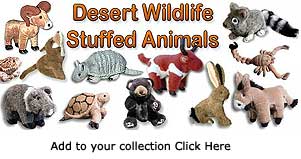Click here to go to the animals page.
![]()
Desert Plants and Animals Forum
Ask Coyote Questions
Coyote Articles
Brother Coyote: Article About Coyotes
The Coyote: An Icon of American Mythology and Folklore
Related Wildlife Articles
Animals & Wildlife Index
Rabies
The Mexican Gray Wolf
Where Have All The Wolves Gone?
Share this page on Facebook:
The Desert Environment
The North American Deserts
Desert Geological Terms
SEARCH THIS SITE
 The Saguaro Video
The Saguaro Video
The Saguaro often begins life in the shelter of a "nurse" tree or shrub which can provide a shaded, moister habitat for the germination of life. The Saguaro grows very slowly -- perhaps an inch a year -- but to a great height, 15 to 50 feet.
 Desert Food Chain Video
Desert Food Chain Video
A food chain constitutes a complex network of organisms, from plants to animals, through which energy, derived from the sun, flows in the form of organic matter and dissipates in the form of waste heat.
 Prickly Pear Cactus Video
Prickly Pear Cactus Video
Prickly pear cactus are found in all of the deserts of the American Southwest. Most prickly pears have large spines on their stems and vary in height from less than a foot to 6 or 7 feet.
Click here to see current desert temperatures!
DesertUSA is a comprehensive resource about the North American deserts and Southwest destinations. Learn about desert biomes while you discover how desert plants and animals learn to adapt to the harsh desert environment. Find travel information about national parks, state parks, BLM land, and Southwest cities and towns located in or near the desert regions of the United States. Access maps and information about the Sonoran Desert, Mojave Desert, Great Basin Desert, and Chihuahuan Desert.


